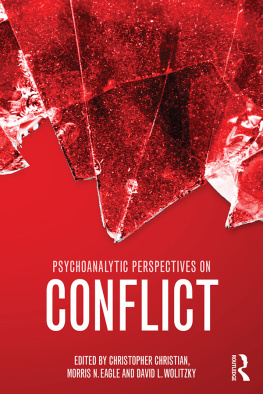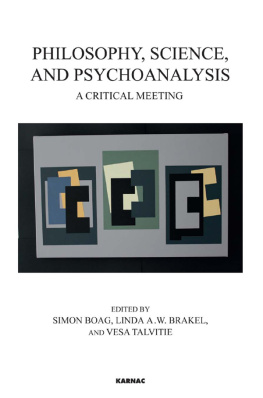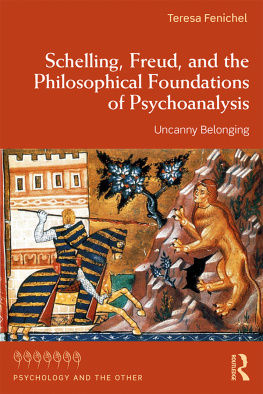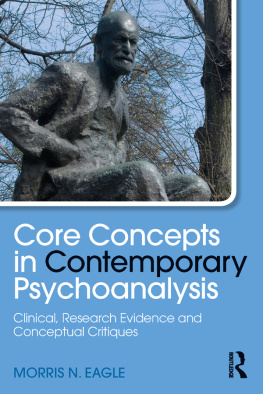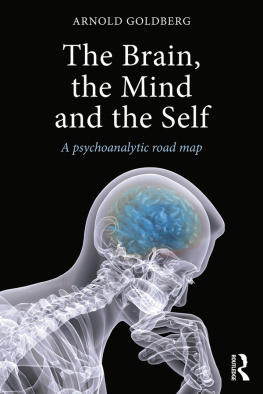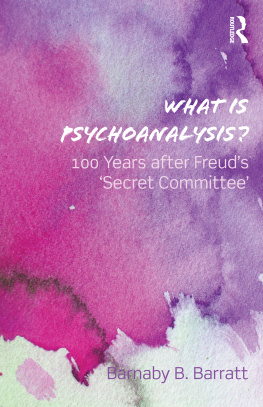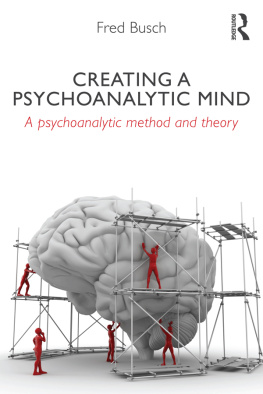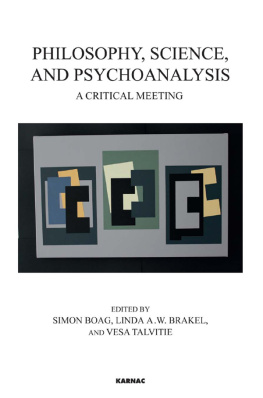I thank the following publishing agencies, societies, and/or journals for their kind permission to publish in the present volume revised versions of works previously published. These are:
The Psychoanalytic Quarterly for Book Review of The Rediscovery of Mind by John Searle by Linda A.W. Brakel, which was first published in The Psychoanalytic Quarterly, 1994, Volume 62, pages 787792, and here, in revised form, makes up part of Chapter .
Wiley-Blackwell for On knowing the unconscious: lessons from the epistemology of geometry and space by Linda A.W. Brakel, which originally was published in The International Journal of Psychoanalysis, 1994, Volume 75, pages 3949, and here, in revised form contributes to Chapter .
Nicolaus Copernicus University Press for Unusual human experiences: Kant, Freud, and an associationist law by Linda A.W. Brakel, which was first published in Theoria et Historia Scientiarum, 2003, Volume 7, pages 109119, and here, in revised form appears as Chapter .
Journal of Evolutionary Psychology for The fate of the dream after awakening: stages toward analytic understanding by Linda A.W. Brakel, which was first published in the Journal of Evolutionary Psychology, 1984, Volume 5, pages 97108, and here, in revised form contributes to Chapter .
Taylor and Francis Ltd. Journals (.
The Austrian Academy of Sciences (DOI: 10.1553/3-7001-3386-3s75) for Drive theory and primary process: a philosophical account by Linda A.W. Brakel. This first was published in Patrizia Giampieri-Deutsch (ed.): Psychoanalysis as an Empirical, Interdisciplinary Science, 2005, pages 7590. Veroffentlichungen der Kommission fur Philosophice und Padagogik, Nr.27: Sitzungsberichte der philosphisch-historischen Klasse, 717. Wien. It now appears, in revised form, as Chapter .
The American Journal of Psychoanalysis for Phantasies, neurotic-beliefs, and beliefs-proper by Linda A.W. Brakel, originally published in The American Journal of Psychoanalysis, 2001, Volume 61, pages 363389, and here, in revised form contributes to Chapter .
Aims
This book has four aims. First, it aims to demonstrate that psychoanalysis as a general theory of mind rests upon a core set of fundamental assumptions. It is from these foundational posits that the clinical psychoanalytic theory (in all of its versions) derives. Further, these foundational assumptions are sound, and place psychoanalysis within the framework of ordinary, normal scientific investigation.
Second, the book aims to explore in depth one of the assumptionsnamely, that human mentation, in addition to our usual rational, secondary process thought, consists in a different form of thoughtprimary process, a-rational mentation. Understanding a-rational primary process as having a separate formal organization, will provide grounds to reinvestigate several topics of interest to psychoanalysts, philosophers of mind and action, and academic psychologists studying cognition, affect and developmentnotably the cognitive and conative psychological attitudes, including wish, desire, phantasy, belief, and drive.
The third aim of the book follows from these investigations, as it will become clear that psychoanalytic concepts and clinical theories can and should be sharpened using the sort of rigor that philosophical analysis can supply.
The fourth aim is reciprocal to the thirdphilosophy of mind and action can likewise benefit as disciplines by having to take into account and explicate psychoanalytic datadata that has as much to do with thought that is unconscious and a-rational as with conscious and rational mentation.
Scope
Other books on these topics have of course been written. There are three in particularIrrationality and the Philosophy of Psychoanalysis by Sebastian Gardner (1993); Open Minded by Jonathan Lear (1998); and The Psychoanalytic Mind: From Freud to Philosophy by Marcia Cavell (1993)each of which I will deal with in a later chapter pointing out the contrasts. But as a preview, let me state what this current volume uniquely offers: (1) an account of psychoanalysis as a general theory of mind fitting in with ordinary science and requiring no special psychology (different from Gardners view in which psychoanalysis is separate from Ordinary Psychology); (2) a coherent view of a-rationally mediated beliefs, desires, wishes, and even phantasies that are propositional (rather than the pre-propositional nature of phantasies for Gardner and Lear); and (3) an account of primary process a-rational mentation as developmentally earlier and not ontologically dependent upon secondary process (which differs from what Cavell holds).
Further, this book demonstrates the integrated use of psychoanalytic data, concepts, and theories with principles and concerns from the philosophy of mind and action, enriching both sides by constraining psychoanalytic theorizing, while broadening philosophys scope. Thus, philosophers of mind and action, and psychoanalytic theorists, as well as clinical psychoanalysts (and clinical psychologists, psychiatrists, and social workers) might well find this book of value. At the same time it is hoped that academic psychologists of various stripes (e.g. developmental, cognitive, social) will also find this work of interest insofar as they too grapple with issues concerning the psychological attitudes, consciousness and unconscious mentation, rationality and its vicissitudestopics directed toward understanding more fully the complex nature of the human mind.
Acknowledgments
I thank those at Oxford University Press (United Kingdom), particularly my editors, Martin Baum and Carol Maxwell, who have had a large role in helping this project take shape. For reviewing and commenting on earlier drafts of various chapters, I thank Andy Egan, Jim Joyce, Ruth Millikan, Jack Novick, Ian Proops, Peter Railton, and Tim Schroeder. Then there are three others, who while they too did review and comment on some of the chapters, did so much more. Therefore, I express my gratitude to Howard Shevrin, David Velleman, and especially my husband (and best friend and critic), Arthur Brakel.
Linda A.W. Brakel
Ann Arbor, Michigan
May, 2008
Part I. General considerations
Part I consists of Chapters presents arguments against critics who challenge the very heart of this project; and then offers a positive account both for a-rational and unconscious, contentful mentation.
1 Introduction
This book is about the philosophical implications of a set of important psychoanalytic concepts, all closely connected to the foundation of psychoanalytic theory. It examines selected intersections of philosophy and psychoanalysis, and it has two intersecting goals. One is to provide, through philosophical analyses, a level of conceptual rigor that has too often been lacking in addressing psychoanalytic concepts. I hope the increased rigor will lead to a renewed appreciation for psychoanalytic theory as a general theory of mind. No less important is the second goal. Uniquely here, psychoanalytic topics are examined philosophically with the aim of expanding philosophys domain. Just as the philosophy of human action can embrace more than rationally mediated action, the philosophy of mind should extend to encompass more than rational and conscious mentationthe philosophy of mind can be a philosophy of the a-rational and unconscious mind too.
Although there are many important books about philosophy and psychoanalysis (e.g. the particular concepts to be taken up in the chapters of this book, I now turn to the vital task of this introductionpresenting the foundational structure of psychoanalysis as a general theory of mind. It is a general theory both simple and elegant, consisting of just five fundaments.


